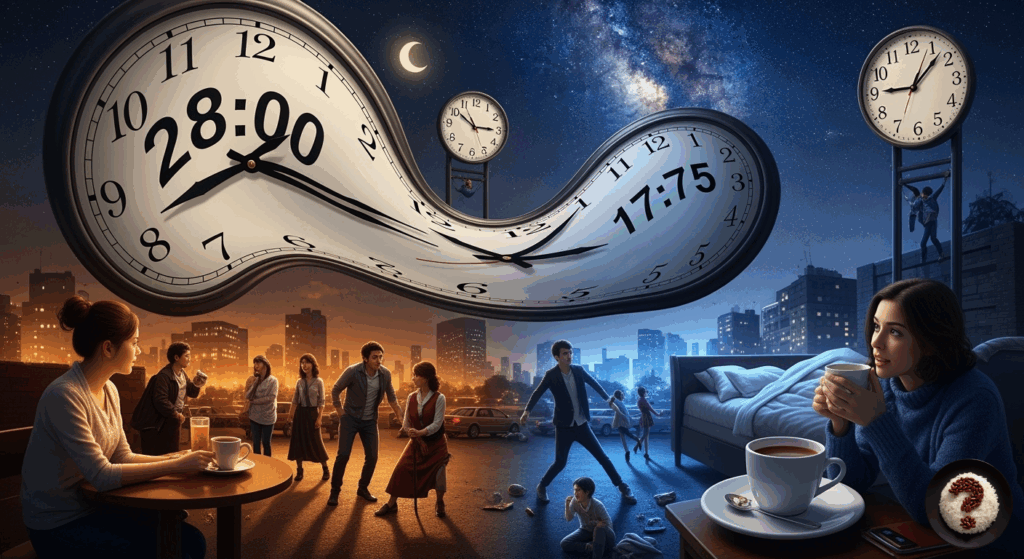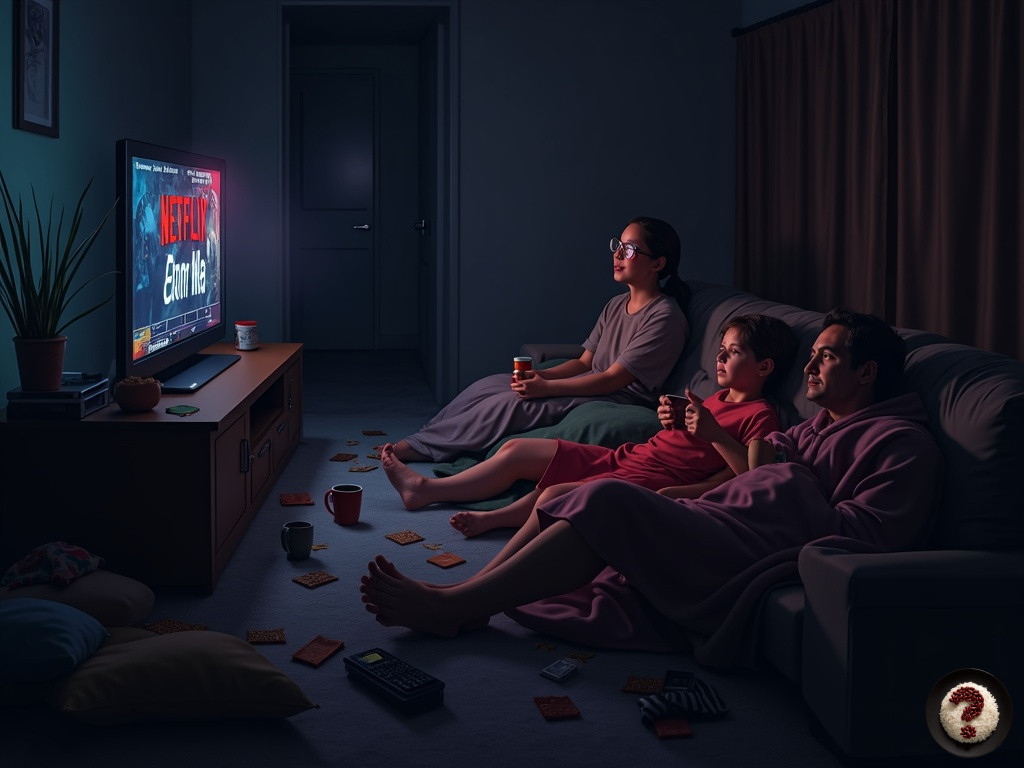
What Time Is It? 28 or 17? – How Would Life Change If Days Weren’t 24 Hours? 🕑🌗
Imagine you wake up in the morning and look at the clock: 7:30. But something is strange. It hasn’t reached 11:59 PMyet; it’s still the afternoon! Or worse, the day finished early; it’s already evening… That’s because days are no longer 24 hours! Sometimes 30, sometimes 8 hours. One day, a statement comes from NASA announcing, “The Earth’s axis has shifted to a new rotation; days are now 26 hours!” It sounds cool, but what would happen to daily life? If you’re ready, let’s get lost together in this fun universe where time is bent!
In the first stage, you would definitely think, “Oh, how wonderful, 26 hours! That means two more hours for sleep!” But would reality ever work that way? The boss wouldn’t let you use those two hours for sleep; they would use them to schedule another meeting. So, just as you’re rubbing the sleep out of your eyes, a new Zoom link would be loaded onto your schedule.
But what if days were 8 hours long? The day would end before the foam on your coffee settles after breakfast! Morning bagel and dinner would merge, becoming a “bagel kebab.” Those saying “good morning” and those saying “good evening” would walk side-by-side outside. Time would be boiling away!
To get to the scientific part, a serious change in the Earth’s rotational speed would indeed affect the length of the day. But this change wouldn’t be easy to notice. Even now, a “leap second” is added every few years. If things continue this way, our grandchildren will say, “A minute actually had 61 seconds in my youth.”

Day and night would also take a hit from this change. On 30-hour days, the morning sun would linger for 9 hours, in a “let me sleep a little more” mode. Evenings would break Netflix records. A series marathon would finish two seasons at once. Anyone claiming “13 episodes in one sitting?” would be told, “You barely slept, friend.”

Things would spin out of control for coffee lovers, too. A person who drinks three espressos on a normal day would start wandering around in a wireless-charging mode during a 30-hour workday. Cafes would start posting “7/30” instead of “7/24.” We would see people dividing their latte into five prayer times.
Of course, we mustn’t forget working hours. Those who used to work 9:00 to 5:00 would rebel, saying, “We work 9:00 to 9:00, but they still call it eight hours.” Unions would form a “time union.” People would march with banners reading, “We demand time justice!” Everyone would get nervous when a police officer asks the time.

The part I wonder about is the alarm clock! While the 5-minute snooze button already makes life miserable, during 30-hour days, those who say, “Let me sleep for 15 more minutes,” and end up sleeping until noon would increase. Missing the morning would become entirely possible; waking up in the afternoon would lead to questions like, “Are you actually working?”
And social life? You say “let’s meet tomorrow” to your friend, but their day is 23 hours, and yours is 28! Setting a date would turn into planning a tourist itinerary: “Tuesday according to your time zone, Wednesday according to my time code. It’s best to handle it over Zoom…”
In conclusion, days being longer or shorter than 24 hours would affect not only our clocks but also our nerves, coffee consumption, and even love letters. Because time is the basic schema of our lives. If it were stretched a bit, we’d relax; if it were shortened, we’d fall apart. But no matter what, the laundry would still be hanging all week—that never changes!
Note: This blog post was written with an absurd but affectionate imagination. We may not be able to control time, but we can spend it with a smile. No matter what time it is, may your laughter be right on time!
